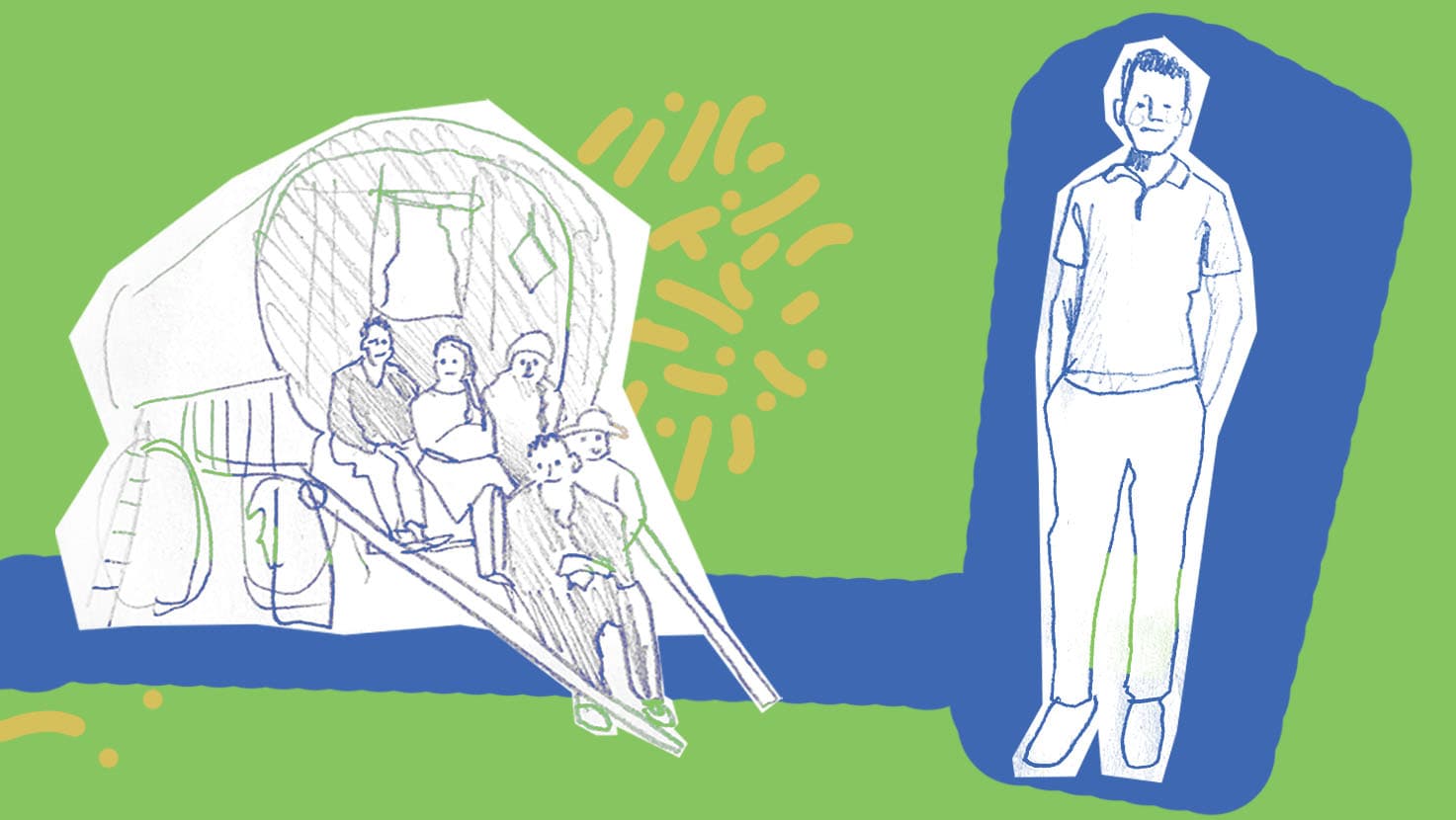Context

This section outlines the background to the culture of Gypsy/Traveller communities and explores the relationship social work has had historically with these communities.
Who are Scotland’s Gypsy/Traveller communities?
The term ‘Gypsy/Traveller’ is used to describe a number of ‘travelling communities’ who live, work and travel throughout Scotland.
It is important to recognise that there is no singular ‘Gypsy/Traveller community’ and that it is more accurate to describe them as ‘Gypsy/Traveller communities’, often with their own diverse histories, specific needs and particular challenges.
The lived identity of Gypsy/Travellers can take many forms – some families are permanently settled, others travel for part of the year, and others live permanently on the road. For much of the community, the ability to travel or share stories of life on the road are still an integral part of the way they experience their identity.
In this section we give a brief background to each community, principally: Scottish Gypsy/Travellers, Irish Travellers and Romany Gypsies. Each of these communities are recognised ethnic minorities and protected under the ‘Race’ category of the Equality Act (2010).
Info
Context: Equality Act (2010)
The Equality Act (2010) legally protects people from discrimination in the workplace and in wider society. The legislation replaced previous anti-discrimination laws with a single Act, making the law easier to understand and strengthening protection for some characteristics. It sets out the different ways in which it’s unlawful to treat someone.
Social work has a legal obligation to uphold the Equality Act (2010), ensuring accessibility, fairness and equity. Find out more about who is protected from discrimination, and the types of discrimination under the law.
Scottish Gypsy/Travellers
Nobody can be certain of the origins of Scottish Gypsy/Travellers 1. Some claim that the community’s roots lie in a pre-Celtic nomadic people (Clark, 2006), while others claim that the contemporary Scottish Gypsy/Traveller community are more closely linked with the Roma diaspora from Northern India (McPhee, 2017). However, they are one of Scotland’s oldest nomadic cultures, travelling Scotland’s highways and by-ways for nearly one thousand years.
Scottish Gypsy/Travellers continue to retain their unique culture through distinct cultural codes, languages and beliefs. Indeed, language and orality are pillars of Scottish Gypsy/Traveller identity, with at least two spoken languages present in the community - Beurla Ragaird and The Cant. Beurla Ragaird is mainly spoken by Highland Travellers, with The Cant being spoken throughout the Lowlands, Perthshire and north east of Scotland.
Scottish Gypsy/Travellers have played many roles in Scotland over time, lending their specialised skills and talents to the development of the land. From skilled tin-smithing, basket-making and seasonal harvest work, to remarkable ballads and songs and wonderful story traditions with local and international connections, Scottish Gypsy/Travellers have contributed to, and been an integral part of, Scotland’s culture for centuries.
As a community, oral tradition is greatly important: songs, folktales, rhymes and legends – orality is at the core of Scottish Gypsy/Traveller culture. The community uses this tradition to educate their children, passing on knowledge of genealogy, history and geography.
There is no comprehensive history book on Scottish Gypsy/Travellers, but despite this, many Scottish Gypsy/Traveller families can trace their ancestors back generations. Impressively, through their stories and songs, some can pinpoint family members at the Battle of Culloden, the Glencoe Massacre and the Highland Clearances. As a result, Scottish Gypsy/Travellers have become renowned for story and ballad tradition. Notably families such as the Stewarts of Blair and the Robertson’s of Aberdeen played a crucial part in the Folk Revival of the 1960s and 70s.
Irish Travellers
Irish Travellers are a nomadic group of people that traditionally originate in Ireland. There has been a long-recorded presence of Irish Travellers in Ireland, dating back to at least the 12th century. Over the years, many Irish Travellers migrated to Scotland and many families have strong family and employment ties throughout the country.
The Irish Traveller community was recognised as an ethnic minority in the UK under the Race Relations Act 1976 (amended 2000). However, the community celebrate Irish Traveller ethnicity day on the 1st of March every year in celebration of being officially recognised in Ireland on the 1st of March 2017.
Some Irish Travellers identify as Pavee or Minceir, which are words from the Irish Traveller language, commonly referred to as ‘Gammon’ or ‘Cant’.
Romany Gypsies
Romany Gypsies have been in Scotland since at least 1505, when King James the IV met a number of ‘Egyptians’ camped near Stirling. The term Gypsy derives from ‘Egyptian’ which is what settled people perceived them to be because of their dark complexion. However, scholars now believe that the Romany arrived in Britain after migrating from continental Europe during the Roma migration from India, not Egypt.
Note
There are several ‘cultural’ travelling communities in Scotland who are not yet recognised as ‘ethnic’ Travellers, such as Showmen and New Age Travellers. These communities are not generally considered under the term ‘Gypsy/Traveller’, however, they often have close social and historical ties with other Gypsy/Traveller communities.
Terminology
This resource will use ‘Gypsy/Traveller communities’ throughout, which is in line with the Scottish Government guidance. However, in the ‘Our voices’ section this may differ, as each community member will use the expression of self-preference. This approach was important to us as it ensures community members feel empowered and heard in a way that makes sense to them. However, it is important to note that not all families accept this terminology with some preferring to be defined as ‘Nawken’ (Donaldson, 2020), ‘Traveller’ (Tammi & Cadger, 2017) and ‘Torikker’ (MacDonald, 2009).
Iriss is a charitable company limited by guarantee. Registered in Scotland: No 313740. Scottish Charity No: SC037882. Registered Office: 5 South Charlotte Street, Edinburgh. EH2 4AN.